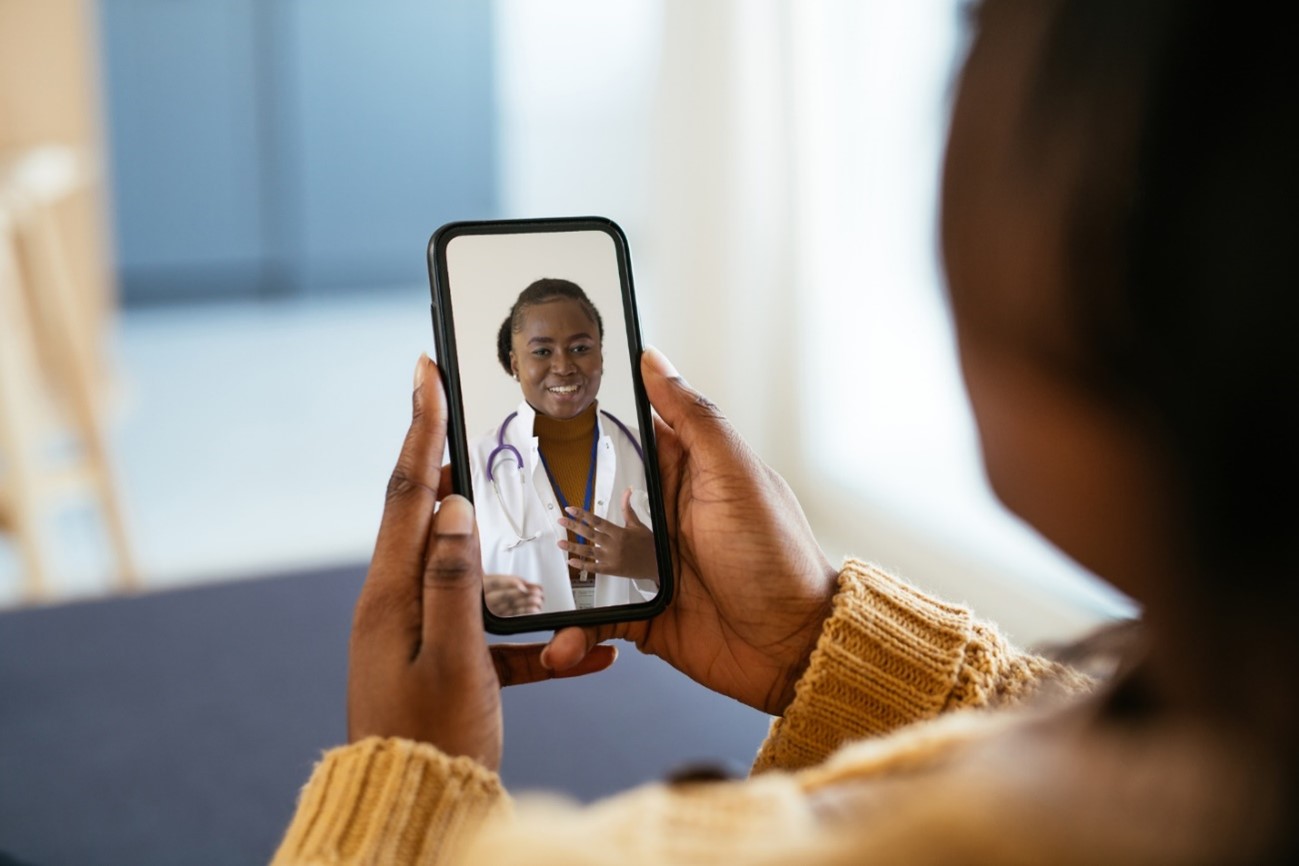Supporting Maternal and Child Tele-Behavioral Health Access Programs

In May, we recognize Mental Health Awareness Month, Women’s Health Week (May 12-18, 2024), and Children’s Mental Health Awareness Week (May 5-11, 2024).
Nearly 20 percent of people ages 3–17 in the US have a mental, emotional, developmental, or behavioral disorder.1 Visits to emergency departments for mental health disorders among children and youth increased by 60% from 2007 to 2016.2 Between 2016 and 2019, there was a 27 percent increase in anxiety and a 25 percent increase in depression among children; this trend continued into 2020.3 Often, pediatric primary care providers (PCPs) are the first to notice a behavioral concern but do not have the knowledge and training to screen, diagnose, and treat the condition.
Among pregnant and postpartum women, behavioral concerns are also prevalent. An analysis by the Centers for Disease Control and Prevention (CDC) found the rate of depression diagnosis at delivery was seven times higher in 2015 than in 2000.4 According to the CDC Maternal Mortality Review data, among pregnancy-related deaths between 2017-2019, mental health conditions were the top underlying cause of death.
With a shortage of psychiatrists, many PCPs and families have limited access to resources and support. The Pediatric Mental Health Care Access (PMHCA) and Screening and Treatment for Maternal Mental Health and Substance Use Disorder (MMHSUD) programs seek to bridge that gap by developing a psychiatric teleconsultation line to assist PCPs in screening and treating pediatric and perinatal patients. With behavioral health conditions rising, addressing gaps in the behavioral healthcare system is crucial. Within the states, territories, and Tribal Nations implementing these programs, the teleconsultation line is staffed by mental health professionals to provide guidance to PCPs in treating patients with behavioral health conditions.
In 2022, JBS launched the Maternal and Child Health (MCH) Tele-Behavioral Health Programs Technical Assistance (TA) Innovation Center through a contract with HRSA’s Maternal and Child Health Bureau. The MCH TA Innovation Center provides comprehensive, customized TA to assist the implementation and success of the PMHCA and MMHSUD programs that support behavioral health integration in pediatric and perinatal primary care. In addition to one-on-one TA, other notable examples of TA include:
Training to build skills for behavioral health access: JBS provides training and capacity webinars on a variety of topics to improve the skills of tele-behavioral healthcare access program staff.
Communities of Practice (CoPs): JBS coordinates a CoP for new awardees that are in the beginning stages of implementing a psychiatric consultation line. The CoP provides a space for awardees to connect with their peers to discuss challenges and develop innovative solutions.
Peer-to-peer connections: JBS connects awardees to other awardees through topic-specific peer sharing sessions. In addition, TA office hours provide awardees an opportunity to ask questions and hear from each other about challenges and solutions.
Resource creation: JBS creates resources for states, territories, and Tribal Nations to accelerate program growth and progress. Resources are based on identified needs and include toolkits, tip sheets, and templates.
Through this and other initiatives, JBS is supporting long-term, sustained efforts that will translate to improved behavioral health for the pediatric and perinatal populations.
References
1 (2022). Child and adolescent mental health. In 2022 National Healthcare Quality and Disparities Report [Internet]. U.S. Agency for Healthcare Research and Quality.
https://www.ncbi.nlm.nih.gov/books/NBK587174/
2 Lo, C. B., Bridge, J. A., Shi, J., Ludwig, L., & Stanley, R. M. (2020). Children's Mental Health Emergency Department Visits: 2007-2016. Pediatrics, 145(6). https://doi.org/10.1542/peds.2019-1536
3 Lebrun-Harris, L. A., Ghandour, R. M., Kogan, M. D., & Warren, M. D. (2022). Five-year trends in US children’s health and well-being, 2016-2020. JAMA Pediatrics, 176(7). https://jamanetwork.com/journals/jamapediatrics/fullarticle/2789946
4Haight, S. C., Byatt, N., Moore Simas, T. A., Robbins, C. L., & Ko, J. Y. (2019). Recorded diagnoses of depression during delivery hospitalizations in the United States, 2000–2015. Obstetrics & Gynecology, 133(6), 1216–1223. https://doi.org/10.1097/AOG.0000000000003291